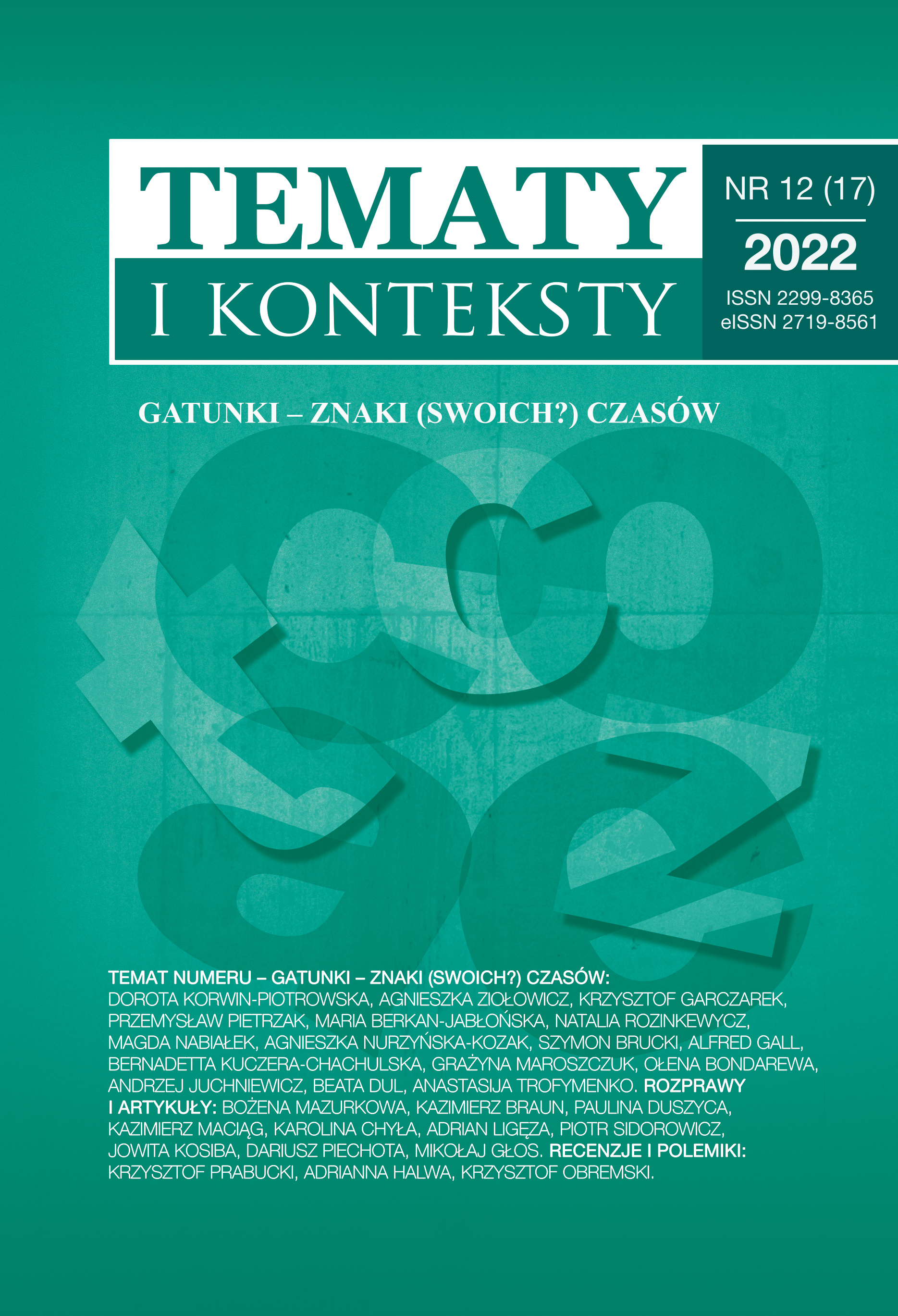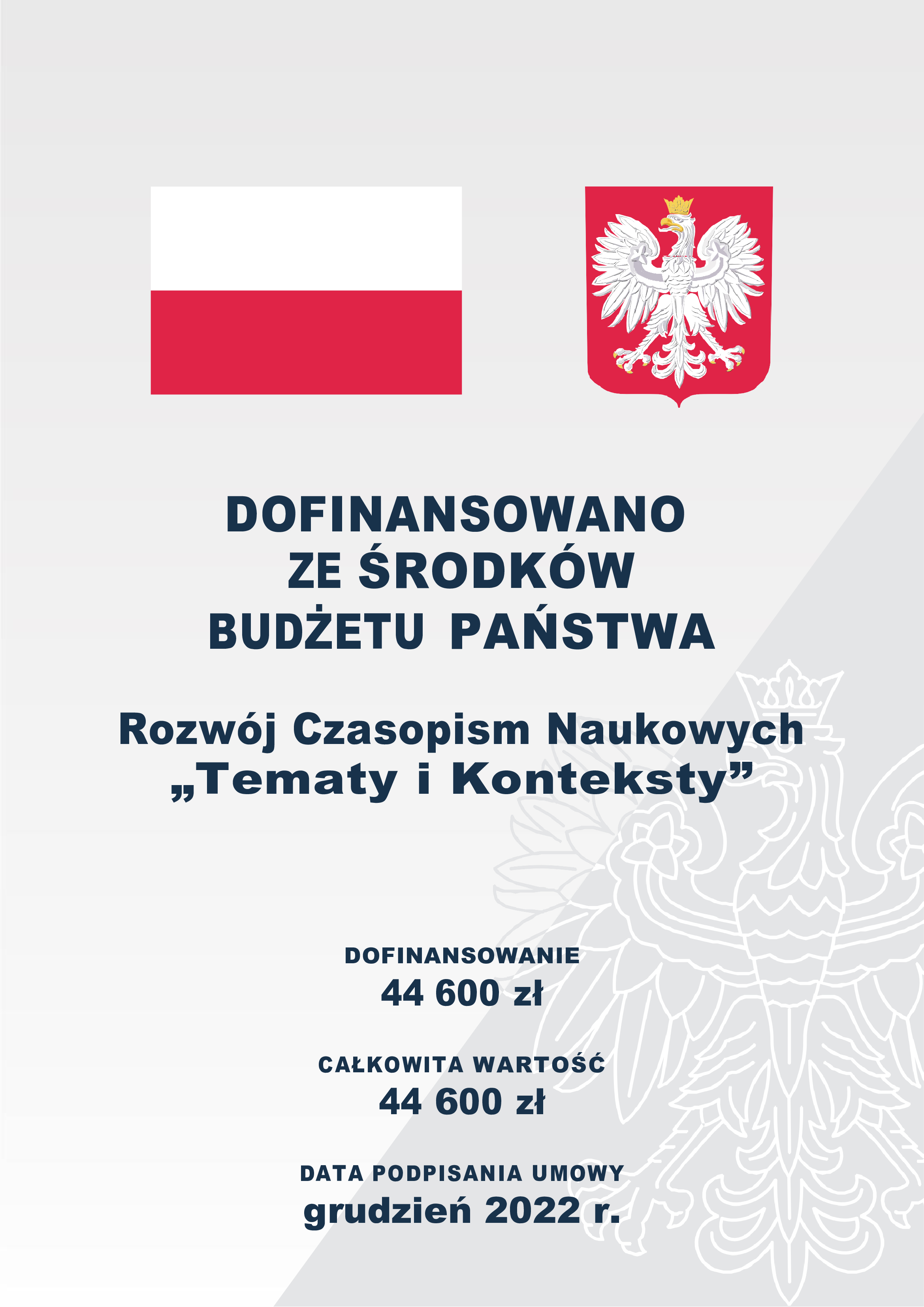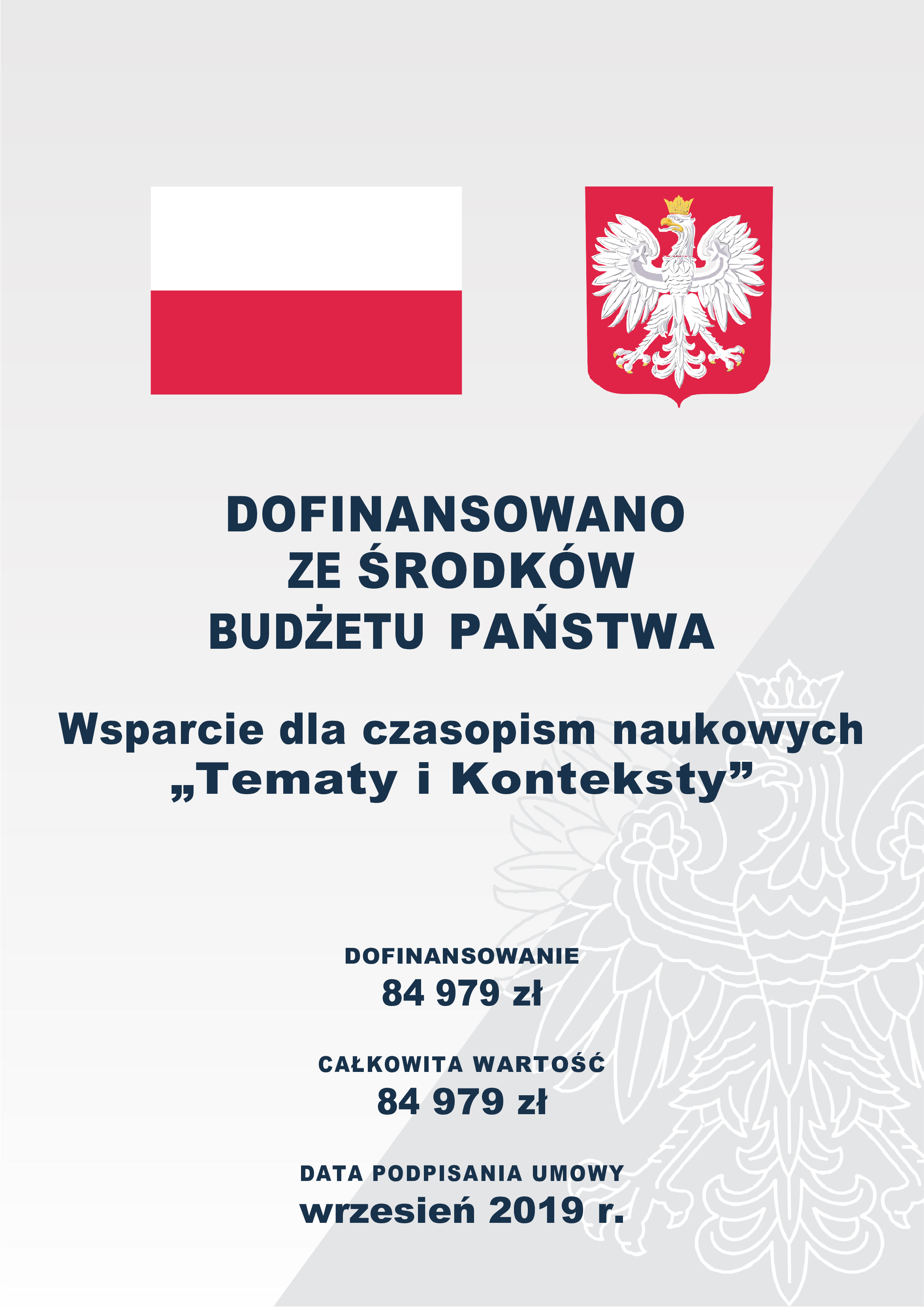Polish Mother Destructor - two faces of dysfunctional motherhood (on the example of Szopka by Zośka Papużanka and Gorzko, Gorzko by Joanna Bator)
DOI:
https://doi.org/10.15584/tik.2022.26Keywords:
mother, motherhood, matriarchy, trauma, dysfunctional familyAbstract
The aim of the article is to present two different images of dysfunctional motherhood in contemporary fictional Polish prose on the example of the novel Gorzko, Gorzko by Joanna Bator and Szopka by Zośka Papużanka. The first of them, represented by the protagonist Violetta Serce of Gorzko, Gorzko, fits in the current literature trend of creating an anti-mother character, an enemy who usually perceives a child as a “problem” or is unable or does not want / cannot show him or her feelings, because motherhood it is an obstacle for her. The second is represented by the nameless mother of Zośka Papużanka's Szopka, who identifies the so-called "Gastronomic mother". The analysis shows that Polish prose of the last two decades still lacks the figure of a mother-friend, and the trauma of being born and growing up in the realities of the PRL’s and capitalism has permanently entered the minds of contemporary writers, destroying optimistic hopes for a successful family life and motherhood.Downloads
References
Bator J., Gorzko, gorzko, Kraków 2020.
Budrowska K., Kobieta i stereotypy: obraz kobiety w prozie polskiej po roku 1989, Białystok 2000.
Kobieta w kulturze i społeczeństwie, red. B. Jedynak, t. 1, Lublin 1990.
Kowalczyk J., Zośka Papużanka, „Szopka”, https://culture.pl/pl/dzielo/zoska-papuzanka-szopka (dostęp: 21.12.2021).
Krzyżaniak M., Niespełna alfabetyczny, internetowy przegląd macierzyński, „Czas Kultury” 2011, z. 4.
Ksieniewicz M., Specyfika polskiego feminizmu, „Kultura i Historia” 2004, z. 6.
Packalen Parkman M. A., Macierzyństwo bez lukru i retuszu. Wizerunek Matki Polki w literaturze polskiej po roku 2000 i blogach, „Postscriptum Polonistyczne” 2017, z. 2.
Papużanka Z., Szopka, Kraków 2013.
Szcześniak K., „Kalina” oczyma slawisty etnolingwisty, w: Amor verborum nos unit. Studia poświęcone pamięci Profesora Sławomira Gali, red. P. Stalmaszczyk, I. Jaros, Łódź 2015.
Titkow A., Stres i życie społeczne. Polskie doświadczenia, Warszawa 1993.
Walczewska S., Damy, rycerze, feministki. Kobiecy dyskurs emancypacyjny w Polsce, Kraków 1999.
Downloads
Published
How to Cite
Issue
Section
Categories
License
Copyright (c) 2022 Tematy i Konteksty

This work is licensed under a Creative Commons Attribution-NonCommercial-NoDerivatives 4.0 International License.




